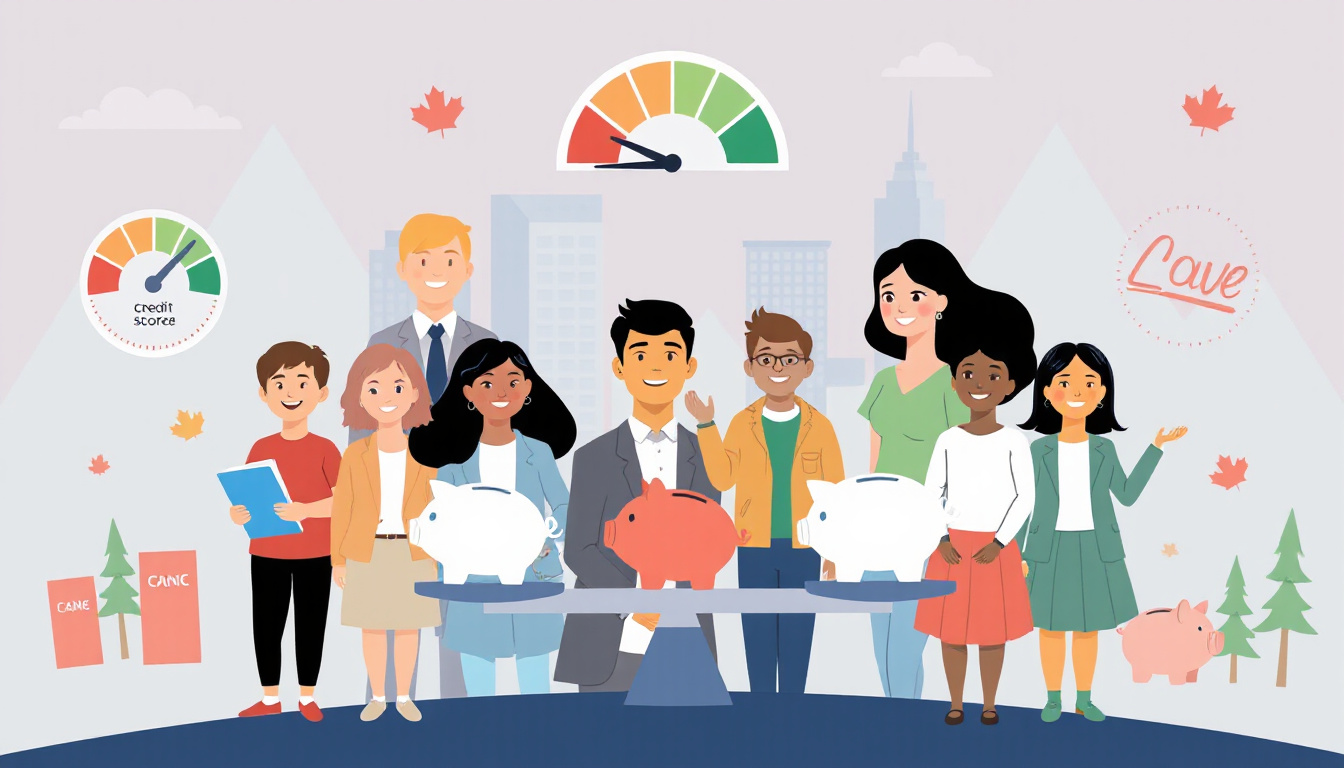Navigating a new financial landscape can be daunting for immigrants in Canada, who may face challenges adapting to local financial systems. From budgeting to understanding credit, it’s easy to make mistakes that can impact your financial future. This article explores common financial mistakes new immigrants make, offers guidance on how to manage expenses, and provides strategies to build credit while avoiding debt. We’ll also discuss the importance of seeking professional financial advice and the resources available to help you succeed in your new home.

Key Takeaways
- New immigrants should familiarize themselves with the financial systems and banking practices of their new country.
- Effective budgeting and managing expenses is crucial to prevent overspending and financial instability.
- Building credit is essential for financial success, but it must be done cautiously to avoid falling into debt.
- Professional financial advice can provide valuable guidance tailored to unique circumstances faced by new immigrants.
- Utilizing available resources can help new immigrants navigate financial challenges more effectively.
Understanding Financial Systems in a New Country
Understanding Financial Systems in a New Country
Navigating the financial landscape of a new country can be daunting, especially for new immigrants. Canada, with its distinct financial systems and regulations, presents its own set of challenges. Many newcomers make common financial mistakes that can lead to stress and instability. This article will help you identify those pitfalls and provide actionable solutions to avoid them so you can build a solid financial foundation in Canada.
### Common Financial Mistakes New Immigrants Make—and How to Avoid Them
1. Ignoring Credit Histories: One common mistake is underestimating the importance of establishing a good credit history. In Canada, credit scores play a significant role in securing loans, obtaining rental agreements, and even job applications. To avoid this, newcomers should apply for a secured credit card to start building their credit.
2. Not Understanding Currency Exchange: New immigrants often misuse their money during currency exchange, especially when sending funds back home. Remember to shop around for competitive exchange rates and inquire about transaction fees to maximize your funds.
3. Inadequate Budgeting: Many newcomers fail to create a realistic budget, leading to overspending and financial stress. Develop a monthly budget that includes all your essential expenses, such as rent, utilities, groceries, and transportation. Make sure to also set aside funds for unexpected costs.
4. Neglecting Insurance: Some new immigrants overlook the need for insurance, whether it be health, renters, or auto insurance. Canada has a publicly funded healthcare system, but it’s essential to understand what is covered and when you will become eligible. Research different insurance providers to find the best coverage options.
5. Falling for Scams: Newcomers may be targeted by scams, particularly when they are unfamiliar with local laws and customs. Educate yourself about common scams in Canada and remain vigilant to protect your finances.
6. Relying Exclusively on Cash: While cash is convenient, relying solely on it can limit your financial options. Embrace banking services, such as debit cards and online banking, to facilitate bill payments and savings.
By understanding these common financial mistakes and actively working to avoid them, you can set yourself up for long-term financial success in Canada. To dive deeper into financial planning and management specific to newcomers, check out resources available at organizations like the Canada Mortgage and Housing Corporation (CMHC) or the Government of Canada.
Budgeting and Managing Expenses Effectively
Financial management can be especially daunting for new immigrants in Canada, who may face unique challenges as they navigate a new socio-economic landscape. One of the most common financial mistakes that new immigrants make is failing to create a realistic budget. It’s crucial to thoroughly assess all sources of income and anticipated expenses, and to track spending meticulously. To avoid overspending, consider using various budgeting tools, whether digital apps or traditional spreadsheets, to ensure every dollar is accounted for. Additionally, new immigrants often underestimate costs related to housing, transportation, and everyday living expenses in their new community, leading to financial strain. Take the time to research and understand the average costs specific to your area, which can significantly help in setting a practical budget. Furthermore, be mindful of impulse purchases and ensure that your spending aligns with your priorities. By taking proactive steps towards effective budgeting and expense management, you can alleviate financial stress and set yourself up for long-term success in Canada.
‘An investment in knowledge always pays the best interest.’ – Benjamin Franklin

Building Credit and Avoiding Debt
New immigrants to Canada often face unique financial challenges and can easily fall into common pitfalls that hinder their financial success. One major mistake is misunderstanding the importance of building credit. Establishing a good credit score can take time but is essential for obtaining loans, renting apartments, and even securing jobs in certain sectors. Newcomers might think that paying cash for everything suffices; however, it is crucial to use credit responsibly, like securing a small credit card and paying it off promptly each month to build a positive credit history. Without a strong credit score, you may encounter higher interest rates on loans and may struggle to access affordable credit options.
Additionally, many newcomers underestimate the cost of living in Canada. It’s vital to create a realistic budget that takes into account all potential expenses, including housing, transportation, and groceries, as these can add up more quickly than expected. Not having an emergency fund is another common oversight. Aim to save at least three to six months’ worth of living expenses to cover unexpected costs without falling into debt. Understanding these aspects of personal finance when settling in can significantly improve financial outcomes and reduce stress.
Seeking Professional Financial Advice and Resources
Financial planning can be daunting, especially for new immigrants adjusting to a different economic landscape. It’s common for newcomers to overlook fundamental aspects of managing their finances. One such mistake involves failing to establish a Canadian credit history, which can hinder future borrowing options. Another misstep is underestimating living costs in cities like Toronto or Vancouver, where rent and basic expenses can be significantly higher than anticipated. Furthermore, many immigrants may not fully understand the importance of setting up an emergency fund to cover unexpected expenses. By proactively seeking professional financial advice, you can navigate these pitfalls effectively. Resources are available, such as non-profit organizations offering financial literacy programs specifically tailored for immigrants. These programs often cover budgeting, credit building, and investment basics, ensuring you make well-informed decisions as you settle into your new life.
Frequently Asked Questions
What are some common financial mistakes new immigrants make?
New immigrants often make mistakes such as underestimating living costs, not understanding the local banking system, failing to build credit, incurring high debt, and neglecting to budget effectively.
How can I effectively budget and manage my expenses as a new immigrant?
To manage your expenses, start by tracking your income and spending for at least a month. Create a budget that accounts for all necessary expenses, prioritize essential needs, and identify areas where you can save.
Why is building credit important for new immigrants?
Building credit is crucial as it affects your ability to obtain loans, secure housing, and sometimes even employment. A strong credit history demonstrates financial responsibility and can lead to better interest rates.
What resources are available for immigrants seeking professional financial advice?
Many organizations, including non-profits and community centers, offer financial literacy workshops, one-on-one counseling, and resources tailored for new immigrants. Online platforms can also provide courses and information.
What should I consider when seeking financial advice as an immigrant?
When seeking financial advice, ensure that the advisor understands the challenges faced by immigrants, looks for culturally sensitive advice, checks for credentials and reviews, and clarifies any fees involved.
